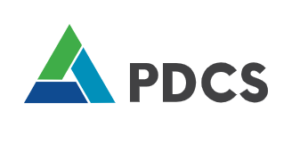
Political Manipulation and Disinformation Regarding the Hungarian Minority
In contemporary times, political manipulation and disinformation are becoming increasingly sophisticated tools for influencing public opinion. A particularly vulnerable group in this context is the Hungarian minority in Slovakia. Politicians and various interest groups often exploit historical, linguistic, and cultural differences between Slovaks and Hungarians to spread disinformation aimed at creating tension between these communities. One of the most common methods of manipulation is the distortion of facts or the creation of entirely false narratives. For example, during election periods, claims often emerge that the Hungarian minority has unreasonable demands for autonomy or is trying to destabilize the Slovak state. These narratives are often presented without evidence, but through repetition and dissemination via social media, they can become “truth” for some people. Another important factor is the language barrier, which can prevent the Hungarian minority from accessing relevant information in the Slovak language, creating space for the spread of disinformation in their mother tongue. Given the historical sensitivity between Slovaks and Hungarians, this manipulation is often associated with emotionally charged topics such as national identity or historical grievances. “Political manipulation often exploits historical, linguistic, and cultural differences between Slovaks and Hungarians to spread disinformation aimed at creating tension between these communities.” Similar practices have been documented in several analytical reports pointing to tactics of distorting facts or spreading entirely false information during election periods (Klimová, 2023). “The language barrier between the majority population and the Hungarian minority can lead to a lack of access to relevant information in the Slovak language, creating space for disinformation.” This topic is an important part of studies on media literacy and ethnic minorities (Novák, 2022). In recent years, the issue of the Hungarian minority in Slovakia has become a target of political manipulation and the spread of disinformation. These practices are often associated with the activities of the Hungarian government, which has an interest in maintaining and strengthening its influence over ethnic Hungarians in neighboring countries, including Slovakia. One of the most significant strategies is the control of media targeting the Hungarian community. The Hungarian government, which spreads specific narratives and influences public opinion in favor of Hungarian interests. These media often spread disinformation related to geopolitical topics such as sanctions against Russia or the war in Ukraine, and also focus on cultural and religious issues, manipulating the public against the broader Western world and the Slovak Republic. A significant example is the spread of the narrative that the West is responsible for escalating the war in Ukraine, while Hungary positions itself as the protector of traditional European values and interests. This propaganda also penetrates political campaigns and public discussions in Slovakia, where disinformation about the discrimination of the Hungarian minority by the Slovak government is often reinforced. Such manipulations are not only a matter of foreign policy but also of domestic political struggles. For example, some Slovak politicians use topics related to the Hungarian minority to gain political points, leading to the polarization of society and deepening distrust between ethnic groups in Slovakia. The overall impact of these disinformation campaigns is significant, as they promote nationalist and xenophobic sentiments and disrupt stability in regions with a high proportion of Hungarian population. Research shows that such manipulation is often more effective when directed by domestic governments that control media channels and can specifically target certain population groups (Vsquare.org, HBS Brussels GLOBSEC). Our ability to critically analyze information and resist manipulation is crucial if we want to live in a society where minorities are respected and diversity is seen as an asset, not a threat. It is important to actively seek out reliable sources of information, discuss with experts, and not hesitate to question simple solutions offered to complex issues.


- How Hungary peddles pro-Kremlin narratives to minorities abroad – VSquare.org
- Hungarian minority in Slovakia: Cultural Ties and Deliberate Building of Influence | GLOBSEC – A Global Think Tank: Ideas Shaping the World
- Disinformation in Hungary: From fabricated news to discriminatory legislation | Heinrich Böll Stiftung | Brussels office – European Union (boell.org)
- Klimová, Michaela. Political Manipulation and Disinformation Targeting Ethnic Minorities in Slovakia. Bratislava: Infosecurity.sk, 2023. [Online]. Available: https://infosecurity.sk [Accessed: Aug. 27, 2024].
- Novák, Peter. Media Literacy and Ethnic Minorities: The Impact of Language Barriers on Access to Information in Slovakia. Budapest: Insight News Media, 2022. [Online]. Available: https://insightnews.media [Accessed: Aug. 27, 2024]



